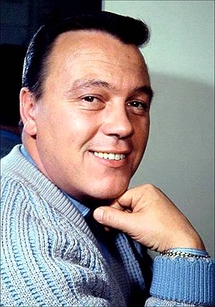به ازای هر نفری که با دعوت شما در منظوم ثبتنام میکنند 20 امتیاز میگیرید.
لینک دعوت:


Before too long, however, pianist Winifred Atwell heard his voice and recommended him to her own recording company, Decca, who signed him. She also helped choose his new name, Matt Monro. Matt coming from Matt White, a journalist friend, and Monro was Atwell's father's first name. Although the recording session went well, sales were only moderate. He got some radio exposure on Radio Luxembourg and also on the BBC with Cyril Stapleton's 'BBC Showband' show and a TV spot on The Winifred Atwell Show (1956). But his lucky break came when EMI producer George Martin asked him to make a demo disc for Peter Sellers to use as a guide to copying the voice and style of Frank Sinatra for his forthcoming album, "Songs for Swinging Sellers". It was such a good guide that Sellers realised he couldn't improve on it himself and the recording was included on the LP under the name of Fred Flange. When word got out who the singer really was and what a fine voice he had, George Martin knew he was onto a winner and signed him for the Parlophone label.
Almost immediately the combination of Monro, Martin and arranger/conductor Johnnie Spence had UK hit parade success with Portrait of My Love. This was swiftly followed by further hits of the calibre of My Kind Of Girl, Gonna Build a Mountain, Softly As I Leave You, From Russia with Love and Walk Away. The latter became the first hit for his manager and friend, Don Black, whom he had met during his Denmark Street days when Don was working for Toff Music. He also made the American charts at a time when this was still quite a rare occurrence, with My Kind of Girl & Walk Away. Another success came when he became the first artist to cover "Yesterday", taking it into the top ten in England.
Between March 1960 and January 1966, Parlophone issued nineteen Matt Monro singles, as well as eight EPs and four LPs. However, a label switch came in 1966, following the death of Nat 'King' Cole. Capitol Records wanted a replacement and Matt was seen as the perfect choice. This was also the beginning of a trend towards LPs rather than singles and he was backed by the likes of Sid Feller and Billy May on albums which included "This Is the Life", "The Late, Late Show", "Invitation to the Movies" and "Invitation to Broadway". His Capitol singles were not particularly successful, with the exception of the very first, the memorable Born Free, with music by John Barry and lyrics by Don Black in only their second collaboration. The new recording contract necessitated a move to the US and he became popular on TV and in cabaret there for a few years.
Back in England he stayed with George Martin but changed labels within EMI to Columbia before that label itself vanished and was incorporated into the new EMI label. During this period Matt twice recorded singles with both sides Barry / Black compositions: This Way Mary/ Wish Now Was Then and Curiouser and Curiouser/ The Me I Never Knew. He also recorded We're Gonna Change The World - originally music used in a TV commercial for Kellogg's Cornflakes!
He continued touring, working at the very best nightclubs like 'The Talk Of The Town', and was a regular on TV. Unfortunately there was a side to Matt Monro that was more-or-less unknown to the public. He was a heavy social drinker and also a heavy smoker. Although his performances appeared unaffected by the effects of alcohol, eventually and almost inevitably, his health suffered and he gave up drinking on doctor's advice. He was diagnosed with cancer of the liver but continued working. Doctors suggested a liver transplant as a last resort to save him, but during the operation surgeons discovered the cancer had spread widely and a transplant would have been pointless. He died shortly afterwards at the Cromwell hospital in London at the age of just 54. His last performance had been a triumphant one at London's recently opened Barbican Centre.
His voice lives on, thankfully, through a series of re-issued CD compilations and constant radio play. He was arguably England's greatest singer of popular ballads and achieved success and acclaim in America before The Beatles and long before Elton John. Twenty years after his death he is still much-missed by his family, friends and many fans. In early 2009 his daughter, Michele Monro, revealed she was writing his biography and it was published in February 2010.